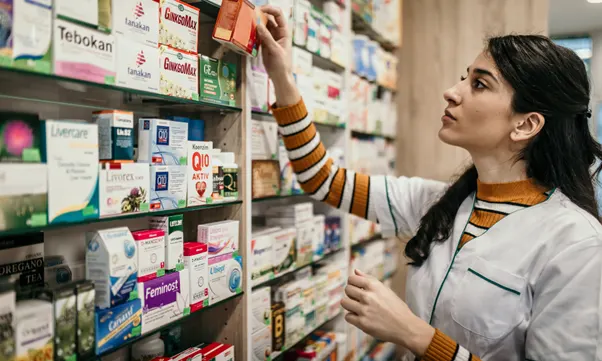Pharmacy education in Indonesia is governed by a comprehensive regulatory framework designed to ensure that pharmacists are well-trained and capable of providing high-quality healthcare services. This framework is established and overseen by various governmental and professional bodies, including the Ministry of Health (Kementerian Kesehatan) and the Ministry of Education, Culture, Research, and Technology (Kementerian Pendidikan, Kebudayaan, Riset, dan Teknologi), as well as the Indonesian Pharmacists Association (Persatuan Ahli Farmasi Indonesia, PAFI). This article delves into the regulatory framework for pharmacy education in Indonesia, exploring its components, challenges, and future directions. Visit pafikotasungailiat.org
Overview of Regulatory Bodies
Ministry of Health (Kementerian Kesehatan)
The Ministry of Health plays a pivotal role in regulating pharmacy education to ensure that graduates are competent and ready to enter the healthcare workforce. Its responsibilities include setting standards for pharmacy education, accrediting pharmacy schools, and overseeing the licensing process for graduates.
Ministry of Education, Culture, Research, and Technology
The Ministry of Education, Culture, Research, and Technology is responsible for the broader educational policies and frameworks within which pharmacy education operates. This includes curriculum development, setting educational standards, and ensuring that educational institutions meet these standards.
Indonesian Pharmacists Association (PAFI)
PAFI is the professional body that supports pharmacists in Indonesia. It contributes to the development of the pharmacy curriculum, provides continuing education programs, and advocates for the profession at the national level.
Accreditation of Pharmacy Schools
Accreditation Process
Pharmacy schools in Indonesia must be accredited to ensure they meet the standards necessary to produce competent pharmacists. The accreditation process is carried out by the National Accreditation Board for Higher Education (Badan Akreditasi Nasional Perguruan Tinggi, BAN-PT) under the Ministry of Education, Culture, Research, and Technology. This process involves a thorough evaluation of the institution’s curriculum, faculty qualifications, facilities, and clinical training programs.
Standards for Accreditation
The accreditation standards for pharmacy schools cover various aspects, including:
- Curriculum: Ensuring that the curriculum is comprehensive and up-to-date with the latest advancements in pharmaceutical sciences and clinical practice.
- Faculty: Evaluating the qualifications and experience of the teaching staff to ensure they are capable of providing high-quality education.
- Facilities: Assessing the adequacy of facilities, including laboratories, libraries, and clinical training sites.
- Clinical Training: Ensuring that students receive hands-on experience in clinical settings through internships and rotations.
Curriculum Standards
Core Curriculum
The core curriculum for pharmacy education in Indonesia is designed to provide students with a strong foundation in pharmaceutical sciences and clinical practice. Key areas of study include:
- Pharmaceutical Sciences: Courses in pharmacology, medicinal chemistry, pharmaceutics, and pharmacokinetics.
- Clinical Pharmacy: Training in patient care, including medication therapy management, patient counseling, and clinical pharmacotherapy.
- Pharmacy Practice: Courses covering the legal and ethical aspects of pharmacy practice, as well as management and communication skills.
Practical Training
Practical training is an integral part of the pharmacy curriculum. Students are required to complete internships and clinical rotations in various healthcare settings, including hospitals, community pharmacies, and industrial settings. This hands-on experience is crucial for developing the skills needed to practice as a pharmacist.
Licensing Examination
National Licensing Examination
Graduates of accredited pharmacy schools must pass the national licensing examination to practice as pharmacists in Indonesia. The examination is administered by the Ministry of Health and tests the knowledge and skills necessary for safe and effective pharmacy practice.
Examination Content
The licensing examination covers various areas, including:
- Pharmaceutical Sciences: Testing knowledge in pharmacology, medicinal chemistry, and pharmaceutics.
- Clinical Pharmacy: Assessing skills in patient care, medication therapy management, and clinical pharmacotherapy.
- Pharmacy Practice: Evaluating understanding of legal and ethical issues, as well as management and communication skills.
Continuing Education and Professional Development
Role of PAFI
PAFI plays a significant role in the continuing education and professional development of pharmacists in Indonesia. The organization provides various programs, including workshops, seminars, and online courses, to help pharmacists stay updated with the latest advancements in the field.
Continuing Education Requirements
To maintain their license, pharmacists in Indonesia are required to complete continuing education credits. This ensures that they remain knowledgeable about new developments in pharmaceutical sciences and clinical practice, and continue to provide high-quality care to patients.
Challenges in Pharmacy Education
Ensuring Quality Across Institutions
One of the major challenges in pharmacy education in Indonesia is ensuring consistent quality across all educational institutions. While accreditation helps maintain standards, there can still be variations in the quality of education and training provided by different schools.
Access to Resources
Access to resources, such as updated textbooks, modern laboratory equipment, and clinical training sites, can be limited, particularly in rural areas. This can impact the quality of education and training that students receive.
Continuing Education Accessibility
Ensuring that all pharmacists have access to continuing education opportunities can be challenging, especially for those in remote or underserved areas. Leveraging technology to provide online courses and virtual training can help address this issue.
Future Directions
Strengthening Accreditation Processes
Enhancing the accreditation processes to include more frequent evaluations and stricter standards can help ensure consistent quality across all pharmacy schools. Collaboration with international accreditation bodies can also bring global best practices to Indonesian pharmacy education.
Expanding Access to Resources
Investing in infrastructure and resources for pharmacy schools, particularly in rural areas, is crucial for improving the quality of education. This includes modernizing laboratories, expanding libraries, and establishing more clinical training partnerships with healthcare facilities.
Leveraging Technology for Continuing Education
Using technology to provide online courses, webinars, and virtual conferences can help make continuing education more accessible to pharmacists across the country. This can ensure that all pharmacists have the opportunity to stay updated with the latest advancements in their field.
Conclusion
The regulatory framework for pharmacy education in Indonesia is designed to ensure that pharmacists are well-trained and capable of providing high-quality healthcare services. While significant progress has been made, challenges remain in ensuring consistent quality across institutions, providing access to resources, and making continuing education accessible. By strengthening accreditation processes, expanding access to resources, and leveraging technology, Indonesia can continue to improve its pharmacy education system and ensure better health outcomes for its population












